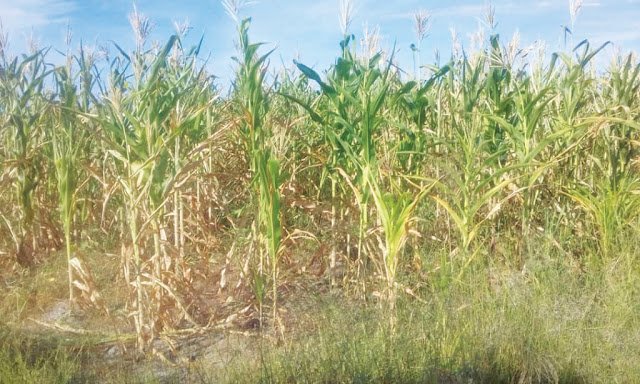…Govt pumps more and more
money into food imports
money into food imports
Beatific Gumbwanda
CHIREDZI – Government has challenged indigenous
farmers to embrace latest farming technologies in order to produce enough food
for the nation and fight the effects of climate change on the country’s
agricultural sector.
farmers to embrace latest farming technologies in order to produce enough food
for the nation and fight the effects of climate change on the country’s
agricultural sector.
The country is spending tens
of millions of dollars yearly importing such basics as wheat, maize and soya
beans yet the country has vast tracts of prime agricultural land that new
farmers who benefitted from the land reform programme cannot fully utilise.
of millions of dollars yearly importing such basics as wheat, maize and soya
beans yet the country has vast tracts of prime agricultural land that new
farmers who benefitted from the land reform programme cannot fully utilise.
Addressing sugarcane farmers
at Incorruptible Sappers Farm in Hippo Valley last week, Vangelis Haritatos, who
is the deputy minister of Lands, Agriculture, Climate, Water and Rural
Resettlement, challenged farmers to work harder to feed the nation.
at Incorruptible Sappers Farm in Hippo Valley last week, Vangelis Haritatos, who
is the deputy minister of Lands, Agriculture, Climate, Water and Rural
Resettlement, challenged farmers to work harder to feed the nation.
“There is no question
that the agricultural sector is the most significant prime-mover of Zimbabwe’s vision
2030. Agriculture is a major source of livelihood for over 67 percent of the
population,” said Haritatos.
that the agricultural sector is the most significant prime-mover of Zimbabwe’s vision
2030. Agriculture is a major source of livelihood for over 67 percent of the
population,” said Haritatos.
Vision 2030 is the
government’s ambitions target to make Zimbabwe a middle income economy by year
2030.
government’s ambitions target to make Zimbabwe a middle income economy by year
2030.
Haritatos said the country
was lagging behind in terms of food security despite the abundance of farmland
and water resources as well as a favorable climate.
was lagging behind in terms of food security despite the abundance of farmland
and water resources as well as a favorable climate.
“It is quite ironic
that with abundant land, water resources and favorable climatic conditions
suitable for the growth of up to 23 crop and livestock varieties, Zimbabwe remains
food insecure and spends substantial amounts of foreign currency each year on
imports of food and other essential commodities. Large sections of the
community languish in poverty, hunger and malnutrition,” said Haritatos.
that with abundant land, water resources and favorable climatic conditions
suitable for the growth of up to 23 crop and livestock varieties, Zimbabwe remains
food insecure and spends substantial amounts of foreign currency each year on
imports of food and other essential commodities. Large sections of the
community languish in poverty, hunger and malnutrition,” said Haritatos.
He said farmers should
participate in the upliftment of Zimbabweans by producing enough food for the
nation.
participate in the upliftment of Zimbabweans by producing enough food for the
nation.
“The solution and most
direct way of dealing with this crisis is by increasing agricultural production
and productivity in a sustainable and environmentally-friendly manner,” he
said.
direct way of dealing with this crisis is by increasing agricultural production
and productivity in a sustainable and environmentally-friendly manner,” he
said.
Incorruptible Sappers
is owned by sugarcane farmer Faster Gono, a war veteran who was recently
recognised for being one of the most productive indigenous farmers in the
Lowveld.
is owned by sugarcane farmer Faster Gono, a war veteran who was recently
recognised for being one of the most productive indigenous farmers in the
Lowveld.







